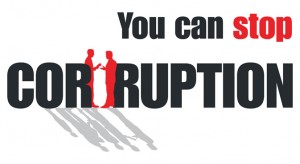IEA urges Ghana anti-corruption agencies to act
 Mrs Jean Mensa, Executive Director, Institute of Economic Affairs (IEA) on Tuesday bemoaned the inability of state agencies established by law to prevent corruption to adequately do so.
Mrs Jean Mensa, Executive Director, Institute of Economic Affairs (IEA) on Tuesday bemoaned the inability of state agencies established by law to prevent corruption to adequately do so.
“It is tragic that several agencies established by law to prevent and fight corruption have not been able to effectively carry out their mandate,” she said.
Mrs Mensa wondered why agencies such as the Police, EOCO, CHRAJ, the Public Accounts Committee of Parliament, the courts and the Auditor General’s Office had not been able to fight corruption effectively in the country.
The IEA Executive Director said this at a seminar organized by the Institute to engage the public on corruption.
She noted that a trajectory of Ghana’s development over the years showed serious drawbacks to its progress due to several factors with corruption been the key issue, adding that, the phenomenon of corruption had become pervasive and continued to weaken the moral fibre of the country.
“Indeed, reports emanating from Transparency International indicate that corruption remains prevalent in all spheres of Ghanaian society,” she said.
Mrs Mensa expressed worry about the nation’s alarming tolerance for corruption, and urged all to work together to arrest the situation.
“If effective measures are not in place to check the menace now, it will completely overwhelm us and we can well wave goodbye to any effective fight against corruption,” she said.
She said the conference would not only propose recommendations to strengthen corruption fighting institutions to bite, but would urge some accountability demands on the heads of these institutions to ensure they deliver on their mandate without fear or favour.
“It’s about time the heads of these institutions are held accountable for their stewardship, after all it is the tax payer’s money that goes to support them and their institutions, therefore they must deliver as expected of them,” she noted.
Justice Francis Emil Short, Former Commissioner, CHRAJ, said the fight against corruption was not only the responsibility of Parliament, the Executive, the Judiciary, Auditor General and the civil society institutions, but the general public as well.
He said although the Commission was bound to control corruption, it has a number of limitations including its inability to prosecute corrupt officials.
“It can only recommend prosecution of such persons to the Attorney General, which the latter may choose not to implement the recommendation especially, if the persons affected are members of the existing administration,” he added.
Speaking on how to fight corruption in the country, Justice Short said the National Anti-Corruption Action Plan (NACAP) had come out with a number of broad measures aimed at strengthening all anti-corruption institutions.
“Among them are adequate resourcing and capacity building, institutional integrity, inter-agency relations, organizational support in terms of appropriate training, infrastructure development and access to information,” he said.
Archbishop Gabriel Charles Palmer Buckle, Metropolitan Archbishop of Accra, Catholic Church, expressed worry about the high level of corruption in the country.
He noted that if NACAP could succeed, it needed to be implemented by honest men and women of integrity who had the nation’s well-being at heart.
In a message read on his behalf, Chief Imam Nuhu Sharubutu, National Chief Imam, noted that the issue of corruption had taken the centre stage in the nation’s media landscape because it had become a bane to the nation’s development.
“Due to corruption, public funds needed for developmental projects have ended up in the pockets of thieves,” he added.
He noted that the use of flashy cars, womanizing by corrupt people were some of the reasons which motivate the youth to go into “Sakawa’’, Internet fraud and other social vices.
Some of the issues to be discussed at the one day seminar include how to empower Ghana’s anti-corruption institutions, the role of parliament in the fight against corruption, ensuring the judicious use of state funds among others.
Source: GNA
